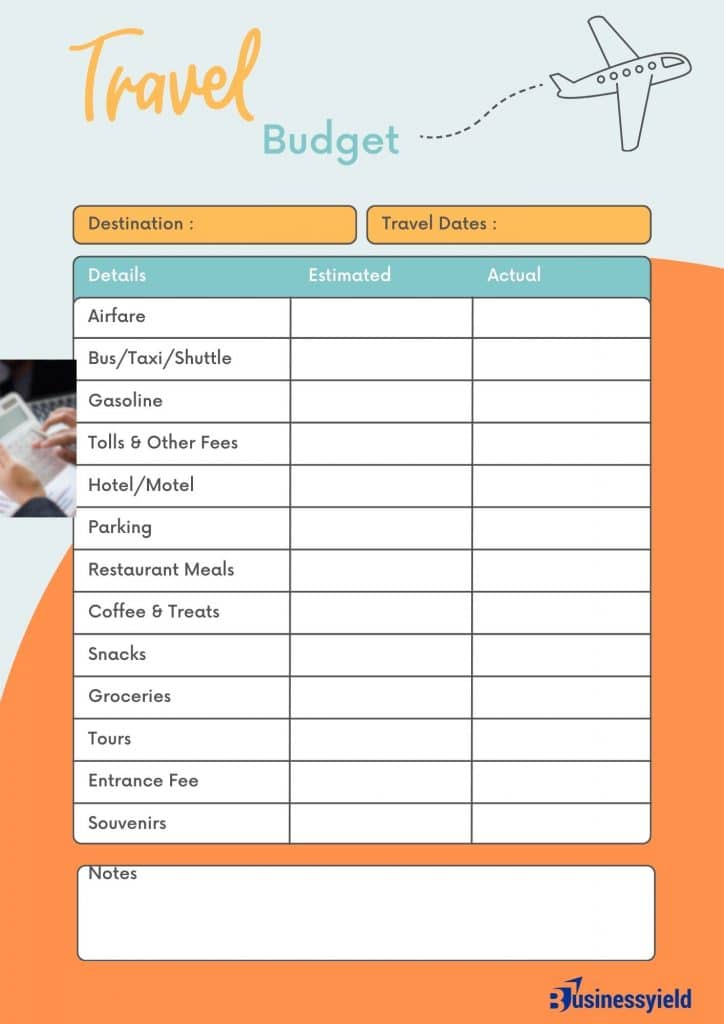As I looked at my laptop screen, I wished for freedom and a break from the stiff dance of working from 9 to 5. Little did I know that this rebellious thought would lead me on an exciting trip into the world of digital nomadism. So, get ready to be amazed as I share my story of the modern traveler and guide you on how to become one! In this article, I will also talk about some of the best digital nomad platforms, companies, and job opportunities you could explore in 2024.
Summary
- Digital nomadism blends remote work with travel freedom, enabled by technology and accelerated by the pandemic.
- The digital nomad community has seen exponential growth, offering diverse remote job opportunities worldwide.
- Essential platforms like Upwork, Nomad List, and Remote OK facilitate job searches, community engagement, and workspace discovery.
- Nomad-friendly companies like Automattic and Buffer prioritize remote work, providing flexibility and support for digital nomads.
- Becoming a digital nomad requires evaluating skills, financial planning, mastering remote work tools, understanding legal considerations, and gradually transitioning into nomadic ventures.
What is a Digital Nomad?
The rise of digital nomadism, blending work-from-home and the joy of traveling, is undeniable. This lifestyle, also made possible by technology, allows people to join from anywhere, ditching traditional offices for beaches, mountains, or busy cities.
Advancements in technology have liberated us from inflexible work settings, allowing connectivity from any place with a Wi-Fi connection. The pandemic also played a pivotal role as a catalyst, accelerating a revolution in remote work and giving additional momentum to this transformative movement.
The magnetic allure of freedom—the ability to set one’s schedule, create distinctive adventures, and liberate oneself from the traditional 9-to-5 routine—plays a crucial role in this paradigm shift.
In 2019, 7.3 million Americans identified as digital nomads, witnessing a 49% surge to 10.9 million between 2019 and 2020, largely attributed to the substantial influence of COVID-19. By the close of 2022, the digital nomad community had expanded further, reaching 16.9 million, with a global count of 35 million digital nomads and projections indicating a potential one billion by 2035.
Understanding Digital Nomad’s Remote Job Opportunities
In the current landscape, where working from home is prevalent, digital nomads have a myriad of exciting choices. Let me guide you through the best online jobs that will transform the world in 2024.
#1. Software Development
My friend Peter, a digital nomad, always found himself coding on virtual playgrounds like GitHub and Gitlab. The demand for skilled developers is higher than ever, and the freedom to participate from anywhere in the world is awesome. If you’re considering digital nomadism, explore remote job opportunities in software development or any field in the IT industry.
#2. Content Creation and Freelancing
In the digital age, friends of mine craft stories and visuals for platforms like Upwork and Fiverr. These thriving marketplaces offer opportunities for freelance writers, graphic designers, and video producers.
#3. Digital Marketing and SEO
Navigating the digital landscape, I discovered the growing importance of online presence. Digital marketing and SEO specialists play a crucial role, with platforms like LinkedIn and HubSpot reporting a significant surge in remote roles.
#4. Virtual Assistance
During my journey, I also witnessed a surge in demand for virtual assistants. Platforms like Virtual Assistant Forums and Indeed highlight abundant opportunities for remote support in administrative tasks—a fantastic way to offer support while enjoying location independence.
Digital Nomad Platforms
These platforms work together to provide digital nomads with a complete set of tools, including job listings, community information, office spaces, and professional networking. Navigating the challenges and enjoying the benefits of living without a set place becomes more manageable with these tools.
#1. Upwork

Upwork has been a powerhouse for workers in my experience. It’s one of the best platforms for those seeking freelance work. Successfully securing projects on Upwork, I’ve found it invaluable. In addition, this platform allows you to showcase your skills, bid on projects, and build a reputation through client reviews.
#2. Nomad List
More than a repository of information, Nomad List is a trusted companion for individuals like me seeking details on essential aspects such as the cost of living, internet speed, safety measures, and the overall community vibe. In essence, Nomad List is an essential resource for uncovering optimal destinations for both work and travel across the globe.

The Nomad List has been my guide to finding the best places to live and work from home. The community reviews provide real-life experiences, making it easier to pick destinations aligned with my preferences and work requirements. I’ve come to rely on this community-driven website for invaluable insights into destinations worldwide.
#3. Remote OK
Dedicated to remote job seekers, Remote OK has been my treasure trove, experiencing a 25% surge in companies offering location-independent positions. It also offers features like a salary calculator and company insights, aiding you in making informed decisions about your potential remote job.

I’ve used Remote OK to explore job opportunities aligned with my skill set. The platform also streamlines the job search process, providing a centralized hub for remote job seekers.
#4. Fiverr
This well-known website for freelancers lets digital nomads list their skills in different categories or “gigs.” Starting at $5, freelancers decide how much to charge.

Fiverr has been a useful site for me as a remote worker. Additionally, it provides an easy-to-use interface for making gigs, getting clients, and growing a freelance business. The variety of groups also makes it possible for people with a wide range of skills to apply.
#5. CoWorker
This website helps digital nomads find places to work together worldwide. Furthermore, it provides reviews, price details, and information about services for coworking spaces, helping nomads choose the best place to work.

My friend Peter, who moved from city to city a lot, recommended coWorker, which is where he goes to find coworking places. This platform also makes sure you have a place to work and meet with others wherever your wandering journey takes you.
Digital Nomad Companies
Getting ready to become a digital nomad? Working for companies that allow online work could be a game-changer. Let me introduce you to the 2024 first-of-their-kind digital nomad-friendly businesses.
#1. Automattic (WordPress)
Automattic stands out as a business that has successfully implemented a remote-first culture, offering freedom and flexibility. They’ve changed the way they work and added to the conversation about the benefits and viability of working from home.

I can speak to the freedom and flexibility they offer, allowing workers to do their jobs from anywhere.
#2. Buffer
Buffer is a social media management tool that prioritizes working from home. With a focus on asynchronous communication and flexible work hours, it’s ideal for digital nomads managing social media strategies from home.

Broadly speaking, Buffer is a social media management tool that puts working from home first. Their work rules stress flexibility and openness.
#3. GitLab
Known for being open and supporting teamwork, GitLab has everyone working from home. With clear guidelines and dedication to remote work, employees have the tools and support they need to thrive in a virtual setting.

GitLab supports remote work, allowing workers to do their jobs from anywhere. This also makes it a good choice for tech-industry digital nomads.
#4. Zapier
Zapier is recognized for its fully remote team and a strong emphasis on work-life balance. As a platform that automates workflows, every employee works from home. They also emphasize letting workers choose when and where they work.

In essence, Zapier is a great company for digital nomads looking for work-from-home jobs because they value freedom and work-life balance.
#5. Toptal
Toptal is a talent market connecting companies with top-tier professionals globally. In addition, it has job openings for designers, software developers, financial experts, and more. Toptal’s approach allows digital nomads to showcase their expertise and engage in a variety of projects.

“Joining Toptal was a turning point for me as an experienced independent worker. This site also helped me meet top clients who were looking for talent. In addition, it was also simple for me to work on different projects and show off my skills all over the world.
Steps to Take to Become a Digital Nomad
After looking into different platforms and remote jobs, switching from a standard job to the freeing life of a digital nomad involves a few important steps:
#1. Evaluate your Skills and Interests
Identify your interests and skills. Why do you like doing the things you do? Think about the skills you already have and pinpoint places where you can improve. I found that diversifying my skills made me more marketable in the remote work landscape, and this step helped me find remote jobs that fit my skills. In addition, diversify your skills to enhance your marketability in the remote work landscape.
For me, diversifying my skills meant learning new programming languages, making me more marketable in the remote work landscape.
#2. Strengthen your Online Presence and Networking
Develop an interesting online portfolio or resume that shows off your abilities and past work. Personal websites and platforms like LinkedIn are important for finding online jobs. My LinkedIn profile became a virtual resume, attracting opportunities. Engaging in virtual meetups and online communities introduced me to collaborative projects and like-minded professionals.
#3. Financial Planning
Manage your money well by making a budget. Make a list of your current expenses, how much you could make as a digital nomad, and any savings you might need for the move.

Create a solid financial plan. My journey involved saving diligently and exploring freelance opportunities, ensuring financial security for the transition to a nomadic lifestyle.
#4. Remote Work Skills and Cultural Intelligence
Master remote work tools and time management. Personal experiences, like working during a power outage in Vietnam, taught me the importance of adaptability. Developing cultural intelligence enriched my professional interactions, as I learned from accidentally causing offense in Tokyo.
#5. Legal Considerations and Readiness Assessment
Understand legal aspects, such as visa regulations. I recall navigating a visa hiccup in Thailand, highlighting the importance of thorough research and preparation. Asking tough questions about your readiness is crucial—I once found myself adapting to rainy days working in a bustling city.
#6. Build a Remote-Friendly Portfolio
Use your stories and experiences to showcase your remote skills. Your portfolio will stand out if you include stories of successful projects from all over the world, demonstrating adaptability and expertise.
Using anecdotes, show off your remote skills. Your portfolio will stand out if you include stories of successful projects that people from all over the world managed to finish. Narrate experiences that demonstrate adaptability and expertise, like working from a hammock in Bali.
#7. Remote Job Search and Gradual Transition
Actively search for remote opportunities through platforms like We Work Remotely. My success story includes landing dream gigs through focused job searches. Start by negotiating remote work arrangements in your current job, gradually transitioning into full-time nomadic ventures.
Challenges of Digital Nomadism
- Instability in your finances: Freelance work or gigs you do from home can make it hard to budget and plan your spending.
- Changes in currencies: When you deal with different currencies, your possible income goes down because of changes in exchange rates.
- Isolation and loneliness: Moving around a lot and not having any fixed roots can make you feel distant and want stability.
- Building meaningful connections: It can be hard to make deep friendships when you’re always moving and interacting with new people.
- Finding a stable Internet connection and a place to work: Internet problems, especially in remote areas, can slow down work and make it harder to get things done.
- Visas and the law: It can be time-consuming and stressful to figure out how to get a visa for different countries and deal with possible legal issues.
- Handling different time zones: Working in different time zones can mess up your sleep pattern and make it hard to talk to your coworkers.
- Living costs: Some places are cheaper than others, but traveling can be pricey, and things that come up out of the blue can make your budget tight.
- Access to healthcare: It can be hard to find consistent and affordable healthcare in different places.
- Limited opportunities for career advancement: Remote work can hinder progression in certain industries.
- Reduced face-to-face interactions with colleagues can impede networking and professional connections.
What does a Digital Nomad Do?
A digital nomad works from home using technology, which lets them move and live in different places while still making money. They use digital tools for jobs like freelance work, running an online business, or working from home for other people.
How Do Digital Nomads Make Money?
Freelancing, online businesses, digital skills, and working from home are some of the ways that digital nomads make money. They do things like marketing, writing, code, and design. Client jobs, online platforms, and starting your own business are all ways to make money.
Which Country Is the Best for Digital Nomads?
The best country for digital nomads depends on personal preferences. However, popular choices include Thailand for affordability, Germany for infrastructure, and Portugal for lifestyle. Research visa requirements, the cost of living, and community support to find the ideal fit.
What Are Common Digital Nomad Jobs?
Common digital nomad jobs include software development, graphic design, content creation, digital marketing, virtual assistance, and remote consulting. These roles leverage online platforms, allowing individuals to work from anywhere with an internet connection.
What Are Some Famous Places for Digital Nomads to Go?
Answer: Bali, Chiang Mai, Lisbon, and Medellin are all popular places to visit because they are affordable, have an infrastructure that works well for digital nomads, and have lively communities.
Do Digital Nomads Pay Taxes?
Digital nomads are usually expected to pay their taxes. Many things affect your responsibilities, including where you live, how you make money, any tax deals, and how long you plan to stay. Tax rules in both your home country and the country where you are working must be fully understood and followed.
In summary,
Now that this comprehensive exploration of the digital nomad lifestyle, job opportunities, platforms, and nomad-friendly companies is over, remember that becoming a digital nomad isn’t just a job choice; it’s a way of life. With the information provided on platforms, online job openings, and nomadic businesses, you’re ready to write your own nomadic story. So, get your bags ready, make some changes to your LinkedIn page, and start exploring the many options that the digital nomad lifestyle provides! 🌍✈






